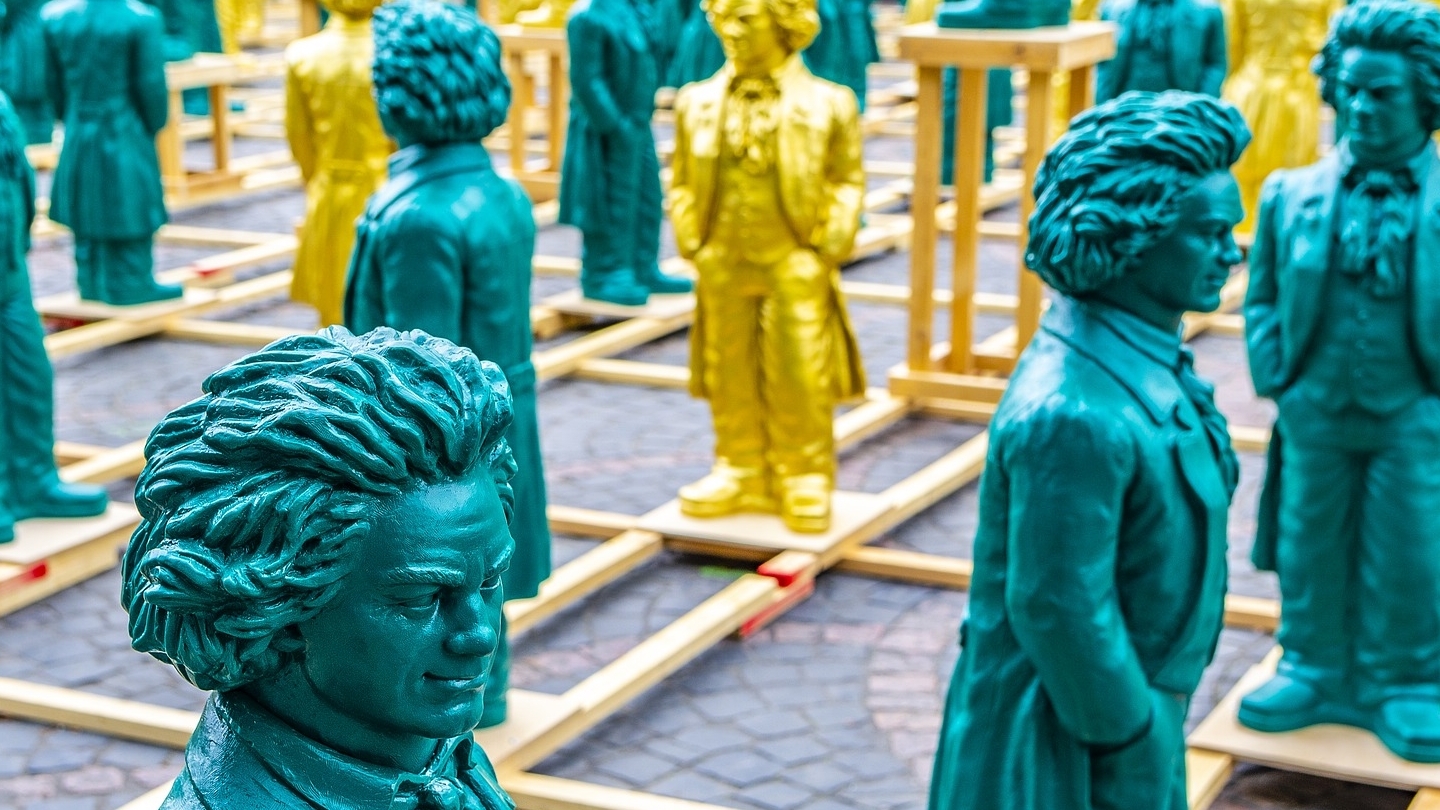There are three 250th birthdays to celebrate this year 2020, first and foremost the birth of the composer Ludwig van Beethoven from Bonn, who is currently present in every concert hall.
But 1770 is also the year in which an influential philosopher and a rapturous poet saw the light of day, namely Georg Friedrich Hegel and Friedrich Hölderlin. The duo Hegel and Hölderlin are something like brand names in the culture industry. Anyone who engages in an educated conversation will notice that no one shrugs their shoulders when the names of the two friends are mentioned, but they may also find that the discussion group falls into silence if they boldly claim not to be able to cope with the texts of the two men. Hegel is quite honest in his writings, which read,
"Philosophy is by its very nature something esoteric, neither made for the rabble nor capable of being prepared for the rabble".
And when Hölderlin sings the praises of Heidelberg Castle in a poem, he says "gigantic castle of destiny", over which "the eternal sun poured its rejuvenating light", using words that are not necessarily made for us - the rabble - either. The fame of Hegel and Hölderlin seems to depend on the incomprehensibility of their writings. A double biography of the two, published under the title "Two Halves of Life", poses the question of why one became a philosopher and the other a poet, given that both tried their hand at the other in their youth. Obviously, one thing demands a person's full attention if you want to make it not just good, but outstanding. However, the opposite is the case with Goethe and Schiller, who were both able to write poetry and philosophical texts - with the advantage that something comprehensible was put down on paper. As long as a gulf remains between art and philosophy, what is produced in one half of the house of culture remains incomprehensible in the other half. Poetry can express truths in a way that remains inaccessible to philosophy and that the people love. If thinkers spurn this help, they achieve the opposite of what they want. They then have nothing to say to the people.


